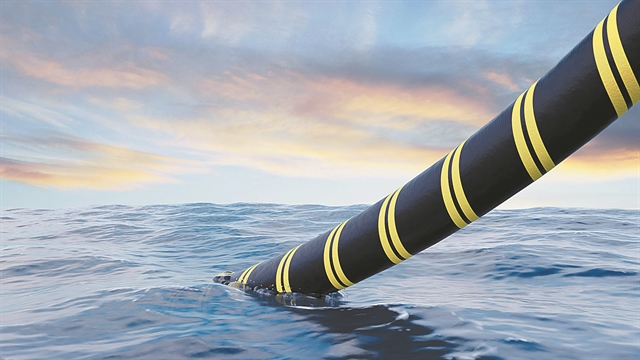“Several points of convergence” were found during the latest meeting to be held on the matter of the Great Sea Interconnector on Friday, according to reports.
Friday’s meeting took place in Athens and was attended by representatives of Cyprus’ energy regulatory authority (Cera) and its Greek counterpart (Raeww), as well as Greece’s deputy energy minister Nikos Tsafos and Cyprus’ ambassador in Athens Stavros Avgoustides.
The Cyprus News Agency quoted sources from inside the Greek energy ministry as having said that the talks “took place in a highly constructive atmosphere”, and that “all the individual regulatory issues of the [interconnector project] were raised”.
It also said that in addition to the “several points of convergence” found at the meeting, “further actions were decided, with the aim of resolving the remaining issues”.
That meeting took place after European energy commissioner Dan Jorgensen had convened a teleconference on Thursday night with Cypriot Energy Minister George Papanastasiou and his Greek counterpart Stavros Papanastasiou.
A joint statement released after that meeting declared that “stock was taken of all the parameters for [the] implementation of the project, while all the parties reconfirmed their will to press on in a spirit of unity and mutual trust”.
Prior to the call, Jorgensen had said the interconnector is “indeed a project of great significance for the European Union and remains as such”.
The pair of meetings come as differences between the two countries over the project remain unresolved, particularly in light of Cypriot Finance Minister Makis Keravnos accusing Papastavrou of “fake news” over the matter on Monday morning.
The following day, Greek Foreign Minister Giorgos Gerapetritis called for clarity regarding Cyprus’ position on the matter.
“This is because, of course, the national benefits which are produced may be very important, but technical and economic viability is also a necessary condition with regard to European funding,” he said.
As such, he said, “it is not a factor which you can ignore”.
Keravnos’ comments had come after Papastavrou had said that he “does not show” the studies which he claimed demonstrate the project is not sustainable.
In response, he said the studies had been commissioned by Cypriot Energy Minister George Papanastasiou, that they were “properly delivered” to the Greek energy ministry, and that they had even been sent to Papastavrou’s predecessor Theodoros Skylakakis.
“We all know the studies and their findings,” he said, adding that “some people’s concerns are reasonable”, and that he himself has “many concerns”.
Papastavrou last week decried what he described as “constantly conflicting messages from the Cypriot side” over the matter of the interconnector.
The rift between the two governments is sourced from the Cypriot government’s initial agreement to make five annual payments of €25m to Greece’s independent transmission system operator Admie before the interconnector is operational, but which it has thus far withheld.
The payments would in effect help finance the project and ensure that Admie, its 51 per cent shareholder and implementing body, will have a stable income while investing in the project before it turns a profit, but the Cypriot government has cited a lack of tangible progress on the project and differences in opinion regarding how the money should be sourced as its reasons behind not paying the money.
To this end, Papanastasiou had said last month that Cyprus will pay the first €25m instalment when the project is being “implemented in its entirety”, and that the construction of cables alone is “not enough” to meet this criterion.
The Republic of Cyprus had initially planned to utilise funds made available to it through the European Union’s emissions trading system (ETS) to make the payments to prevent the burden of the payments from falling on the taxpayer.
Admie had warned that this arrangement may violate the EU’s rules on state aid, and as such asked Cera to begin charging consumers instead.






Click here to change your cookie preferences